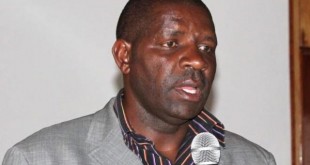Public money meant to uplift higher education is once again in question. Masinde Muliro University of Science and Technology is under fire over a controversial Ksh78 million swimming pool project that collapsed midway.
The swimming pool, which was intended to be a facility of pride, has now become a scandal of mismanagement, unanswered questions, and wasted resources.
Lawmakers are demanding accountability after uncovering how the ambitious project was altered, delayed, and ultimately terminated without results. Students and taxpayers remain the biggest losers.

Masinde Muliro University Swimming Pool at the Centre of Audit Storm
The stalled construction of the Masinde Muliro University Swimming Pool, valued at Ksh78,200,692, was among the projects flagged by the Public Investments Committee on Governance and Education. During their inspection tour on September 1, led by Bumula MP Wanami Wamboka, legislators exposed serious irregularities in how the project was managed.
Initially, the plan was to build an Olympic-size swimming pool—50 meters long and 25 meters wide. However, university management altered the Bill of Quantities and converted it into an Olympic Standard pool. This change introduced strict and costly technical requirements, including depth, lanes, and competition-level technology.
The contractor revealed that the university’s decision made it impossible to deliver within the allocated funds. With progress only at 65 percent, both parties agreed to terminate the contract. Yet, questions remain on why the project was altered in the first place, and why the university ignored the financial realities.
MPs accused the institution of misusing public funds and illegally renewing the contract after it lapsed. “Public funds were used in a project without a legal contract. We would like to review the documents and determine who made the erratic decision,” Wamboka told the press.
Unanswered Questions on the Masinde Muliro University Swimming Pool Project
Lawmakers pressed the university to explain the rationale behind the alterations and whether students were ever consulted. Many noted that learners, who stood to benefit the most, were left out of the decision-making process.
Audit reports show that the contract expired before completion, yet management extended it illegally. This raised suspicions of collusion and cover-up. Legislators also want to know whether kickbacks or vested interests drove the drastic changes.
Students remain without the promised facility, despite millions being sunk into the ground. Parents and the public, who fund the university through taxes, are demanding transparency. The committee promised to dig deeper and hold those responsible accountable.
The scandal is not isolated. The university was also flagged for stalling other projects, such as biometric gadgets for the ICT department. The gadgets had been fully paid for but were never installed, raising further concerns about accountability.
Wider Concerns on Mismanagement in Public Universities
The case of the Masinde Muliro University Swimming Pool mirrors challenges seen in other institutions. At Kabianga University, legislators found a library project worth Ksh834 million stalled for over seven years. Initially meant to be completed in 2020, it remains unfinished at 72 percent. The management blamed minimal government funding, but MPs challenged them to adopt self-sustaining measures.
At the same institution, lawmakers also discovered that over Ksh3 million in imprest was irregularly used to fuel vehicles despite an existing contract with a fuel provider. Procurement officers had advised against the move, yet their input was ignored.
Committee members criticized the compromised independence of key university departments, including HR and procurement. They called for leadership to allow professionals to operate without interference.
The Way Forward
The Masinde Muliro University Swimming Pool scandal underscores the need for stronger oversight in public institutions. Projects meant to benefit students should not be derailed by mismanagement, poor planning, or vested interests.
The Auditor General’s reports and the Committee’s findings highlight systemic weaknesses in governance. Lawmakers are now pushing for accountability, but whether real action will follow remains uncertain.
For now, the half-built pool stands as a monument of failure—Ksh78 million spent with nothing to show. Students still wait for facilities that could enrich their education, while the public waits for answers. Unless those responsible are punished, history may repeat itself across other universities.











































